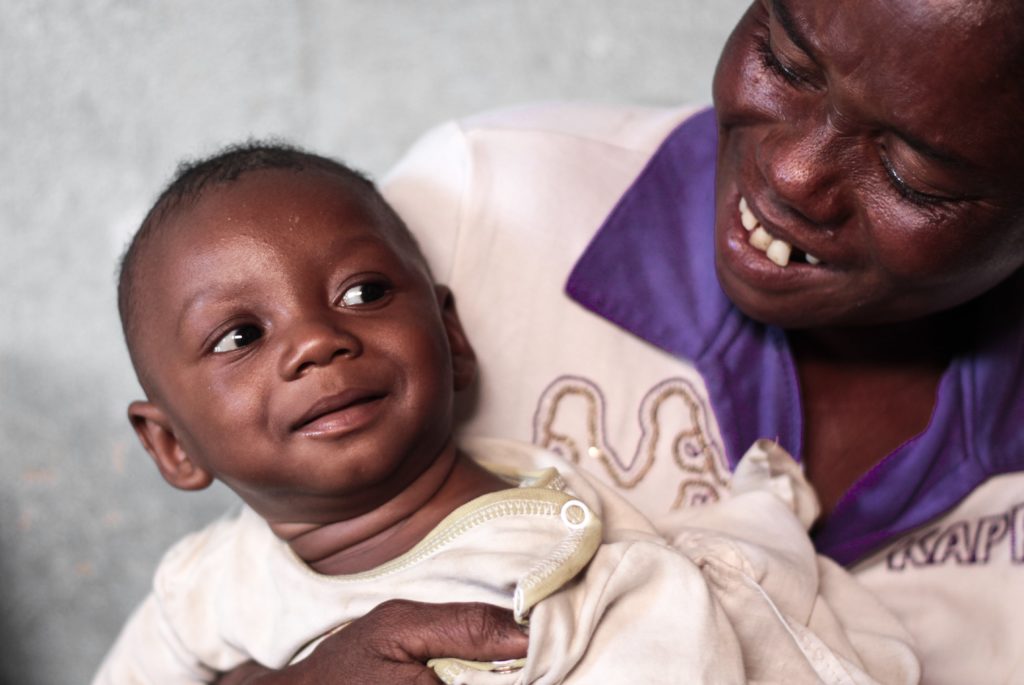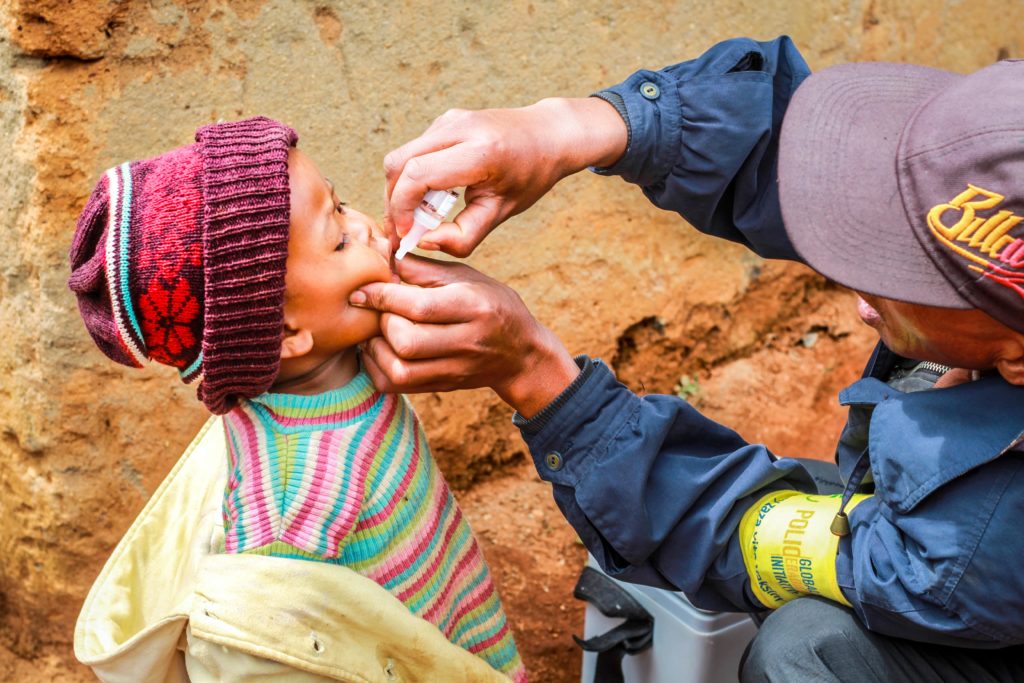USAID Mikolo
USAID Mikolo


Measles in Madagascar
The community is the bedrock of epidemic prevention. A close relationship between community and health officials can mean the difference between an outbreak contained and an epidemic that costs thousands of lives and destabilizes an economy. In late 2018, Madagascar had a serious measles outbreak that infected 140,000 people and claimed the lives of 1,250 Malagasies, more than half of them children. MSH mobilized more than 3,000 volunteers to join the national response. These volunteers had been dealing with nutrition, malaria prevention and treatment, family planning, and other health interventions. When measles hit, we trained them on case management: detection, treatment referral, notification, and contact tracing. Thanks to this and other efforts, by early 2019 the outbreak was contained.
Overview
Through the USAID Mikolo Project in Madagascar, we worked alongside the Government of Madagascar to reduce maternal, infant, and child morbidity and mortality by increasing the use of community-based primary health care services and encouraging women and children to adopt healthy behaviors. The five-year project directly served an estimated 4.6 million people living more than five kilometers from a health facility and achieved significant gains in maternal and child health:
- Continuing users of family planning increased from 66,465 in 2014 to 150,557 in 2018
- 130,250 children under five with diarrhea were treated with oral rehydration therapy by community health volunteers (CHVs)
- 302,158 children under five with pneumonia were taken for appropriate care
- Treatment rate for confirmed malaria cases in children under five treated with artemisinin-based combination therapy (ACT) by CHVs increased from 58% in 2014 to 93% in 2018
- ACT stock-outs decreased from 20% in 2014 to 5% in 2018
- 2,987,746 children were registered for growth monitoring and promotion activities
- 118,664 women were referred by CHVs for antenatal care
- Facility-level deliveries increased from 50,192 in 2015 to 115,148 in 2017
In partnership with the Ministry of Public Health (MOPH), the project introduced and scaled up innovative interventions, tools, and approaches, such as a mobile health application to improve the quality of CHV service delivery and reporting; a CHV peer supervision program to improve quality of care, reduce the human resources gap, and improve CHV motivation; a community-based commodity logistics management system; an epidemiological surveillance approach that incorporates community-level data to more rapidly respond to malaria outbreaks; savings and internal lending communities to increase access to credit and economic empowerment of community members; and a series of approaches to ensure, improve, and sustain the quality of community-based health services delivered by CHVs.
We helped to build a stronger and more sustainable health system that is responsive to the needs of Madagascar’s population. Through close collaboration and coordination with the MOPH, the project was able to effectively and efficiently transfer ownership of the activities, programs, tools, and materials to the Government of Madagascar and its partners.
Community Health The ACCESS Program: Scaling Up Health Technologies
Community Health Volunteers on the Frontline of Malaria Prevention
In the effort to combat malaria in Madagascar, USAID Mikolo supports community health volunteers such as Fanamamy Retsilaky, who work hard to raise awareness about proper use of bed nets and prompt treatment when symptoms arise.
Donors & Partners
Donors
The United States Agency for International Development (USAID)
U.S. President’s Malaria Initiative (PMI)
Partners
Action Socio-sanitaire Organisation Secours
Catholic Relief Services
Institut Technologique de l’Education et du Management
Dimagi
Overseas Strategic Consulting, Ltd.